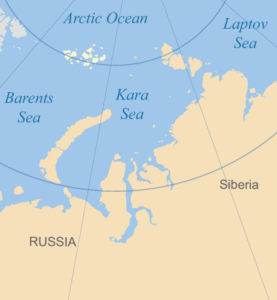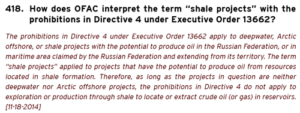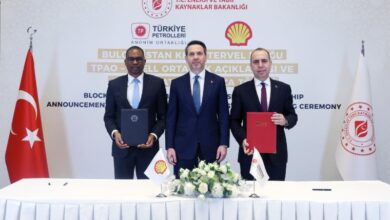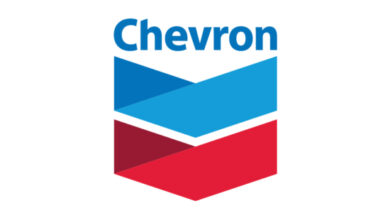US sanction regimes continue to evolve for Russia, Iran, Cuba
Business prospects must be balanced with careful risk management, understanding of local challenges and well-drafted contracts
By Jennifer Bickley, Chamberlain, Hrdlicka, White, Williams & Aughtry

Since early 2014, the US has seen a significant number of changes to the sanctions imposed by the Department of Treasury’s Office of Foreign Asset Control (OFAC). These changes have, or may have in the future, a meaningful impact on the oil and gas industry. Generally, OFAC’s purpose in imposing sanctions is to support the US’ foreign policy and national security goals through sanctions that are imposed on (i) individuals/entities through a published list of those persons with whom US persons/entities cannot do business (SDN List); (ii) targeted trade areas (sectoral sanctions) and targeted individuals in those areas (SSI list); and (iii) specific countries.
Recently, OFAC has strengthened sanctions against Russia through sectoral sanctions and the SSI list and has decreased sanctions imposed on both Iran and Cuba, which have historically been strictly embargoed. This article will generally discuss the sanctions against Russia, Iran and Cuba and provide guidance on managing risks when working in countries with a higher potential risk profile for sanctions.
Russia
Russia has been subject to a broad range of economic sanctions since 1984. As a result of Russian troops seizing Crimea, sanctions were imposed in March 2014. The sanctions originally focused on the financial sector by freezing and blocking property of persons responsible for asserting authority in Ukraine. Sectoral sanctions were also put into place, and certain entities were placed on the SSI list. The sectoral sanctions emphasized business in the energy sector and prohibited “the provision, exportation or re-exportation, directly or indirectly, of goods, services (except for financial services), or technology in support of exploration or production for deepwater, Arctic offshore, or shale projects that have the potential to produce oil in Russia or its maritime area and extending from its territory, and that involve any person determined to be subject to its directive, its property, or its interest in property.”

OFAC issued a clarification explaining the scope of the directive and clarified that the prohibition of exploration or services include drilling services, geophysical services, geological services, logistical services, management services, modeling capabilities and mapping technologies. Finally, an Executive Order was issued that essentially prohibits all trade in Crimea.
The Russian sanctions highlight how sectoral sanctions can immediately impact those companies operating in the sanctioned region. It was commonly known at the time that ExxonMobil was in the midst of drilling operations when the sanctions were put into effect. Although OFAC allowed for a short “winding up” period after the sanctions were implemented, ExxonMobil was on a relatively short time frame to halt drilling operations in Russia’s Kara Sea. Since this was a deepwater, Arctic offshore project, it was clear to ExxonMobil that operations had to cease. There is also little doubt that the language in the sanctions was likely targeted at the then-known activities to ensure that the sanctions had the desired effect.
However, the case with Russia also highlights the problem that occurs when sanctions are published but are not entirely clear. Often, sanctions are published and then followed by FAQs that are answered by OFAC only after OFAC receives questions from the public. This leads to uncertainty for some period of time as to exactly how the sanctions are to be imposed. This is particularly difficult with sectoral sanctions, where parties are actively engaged in ongoing operations in a region and do not know how to proceed. For example, this problem occurred with the Russian sectoral sanctions because the inclusion of term “shale projects.” The initial sanctions were published on 12 September 2014, but clarifications of the meaning were not published until 18 November 2014.
This leads to difficulty and confusion for companies attempting to determine how to proceed, especially when production is ongoing or there are contractual pressures and a desire to not breach a contract.
Iran
Since 1987, sanctions have been in place against Iran that prohibited almost all trade. When discussions of the Iranian nuclear deal arose, many in the oil and gas industry desired to be among the first to enter Iran. Very few people realized that the sanctions being lifted did not apply to US entities. The Iran sanctions were twofold – the sanctions prohibited both US persons and entities and non-US entities from doing business in Iran. Only the latter – the sanctions prohibiting non-US persons from doing business in Iran – were lifted. Almost all of the sanctions as to US persons doing business in Iran remain in place to this day, aside from only a few exceptions.
Confusion over these sanctions was rampant because little was published during the discussion and, in retrospect, most people did not understand that the changes to the sanctions only concerned non-US persons. Many companies were gearing up to locate agents and begin discussions to do business in Iran. Even after the changes were published, many companies still did not understand these limitations and did not appreciate the risks they were taking when engaging in preliminary discussions with Iranians.
Cuba
The embargo against Cuba went into effect in 1960 as a result of Cuba’s Communist Party, the Cuban Missile Crisis and Cuba nationalizing American-owned Cuban oil refineries. Recent steps have been taken to normalize trade relations with Cuba, primarily aimed at allowing travel to Cuba and to increase commerce, particularly in the area of telecommunications. Twelve general licenses now authorize travel to and from Cuba for things such as: family or government visits, journalistic activity, professional research, educational or religious activities, public events and humanitarian projects, conducting market research, contract negotiations, organization of professional meetings or conferences; and other humanitarian projects.
Tourist activities in and of themselves are not permitted. At this time, licenses are generally being denied for exports and re-exports to state-owned entities or other entities that primarily generate revenue for the state and for those in the tourism industry or engaged in the extraction or production of minerals or other raw materials. This particular restriction shows a continued unwillingness by the US government to support Cuba in creating revenue or investing in tourism or oil and gas related opportunities.
Managing risks
While the business prospect of moving into a new market is exciting, and many entrepreneurs have been successful at doing so, it can also be fraught with risks and hidden obstacles that can be devastating to the unsuspecting and unprepared. Being knowledgeable about the country and the particular obstacles presented in that market, ensuring robust compliance programs are in place and having adequate contractual protections can significantly reduce the risks when considering a business opportunity in a developing or newly opened country. This can also help when the rules are changed mid-project and work must cease in order to comply with US law.
Local challenges
Knowing the local challenges is the key to a successful venture. Consider the local workforce and whether there is a sophistication level that would allow your company to work within any local content requirements. In some countries, there is a lack of resources to perform business functions. For example, a major issue in Cuba arises from the lack of fuel and the inability of workers to routinely come to work. Local taxes are also a major consideration. Again, in Cuba, the tax rate for a worker is up to 50% if the individual makes over 50,000 Cuban pesos (about US$1,900) a year. This tax rate also applies to any non-Cuban who works in Cuba for more than 180 days. This will be a significant concern if it is necessary to have US employees in Cuba. Thus, knowing and considering country-specific obstacles is crucial to a successful venture.
Contracting
A well-drafted contract is one of the best ways to provide protections, especially when working in a new country where sanctions have recently been lifted or are likely to change. First, provide adequate methods to terminate the contract, both for convenience and default, including for any violations of US law and if there is a change in US law. To the extent possible, steps should be taken to secure people and property in the country upon termination. Second, all payments should be guaranteed by way of a letter of credit that can be drawn upon from a US financial institution or, where possible, require advance payment before commencing work activities. Third, a well-drafted dispute resolution clause that places the dispute into a favorable forum and utilizes the substantive law of one of the US states is essential. However, when drafting such a clause, check with local counsel to make sure the clause is enforceable in that country.
Compliance/due diligence
Having an effective compliance program is also crucial to avoiding violations of OFAC and export regulations and to reducing penalties in the event of an inadvertent violation. While compliance programs are recommended for any company working overseas, they are especially important when working in countries that are under additional governmental scrutiny through sanctions programs. The government responds more favorably to companies that are making best efforts to comply with US law.
An effective compliance program ensures that employees are trained to identify areas of risk, have an understanding of potential violations and are aware of the methods available to report issues to management without fear of retribution. It will also have appropriate procedures in place for effective due diligence and auditing to avoid and detect potential violations.
As seen over the past few years, the imposition of or the relaxing of sanctions are unpredictable, but by properly managing these risks, it can be possible to work successfully in countries when allowed, and then quickly exit those countries if the government changes or imposes sanctions when in the middle of a project. DC
This article is based on a presentation at the 2016 IADC Contracts and Risk Management Conference, 11-12 October, Houston.




